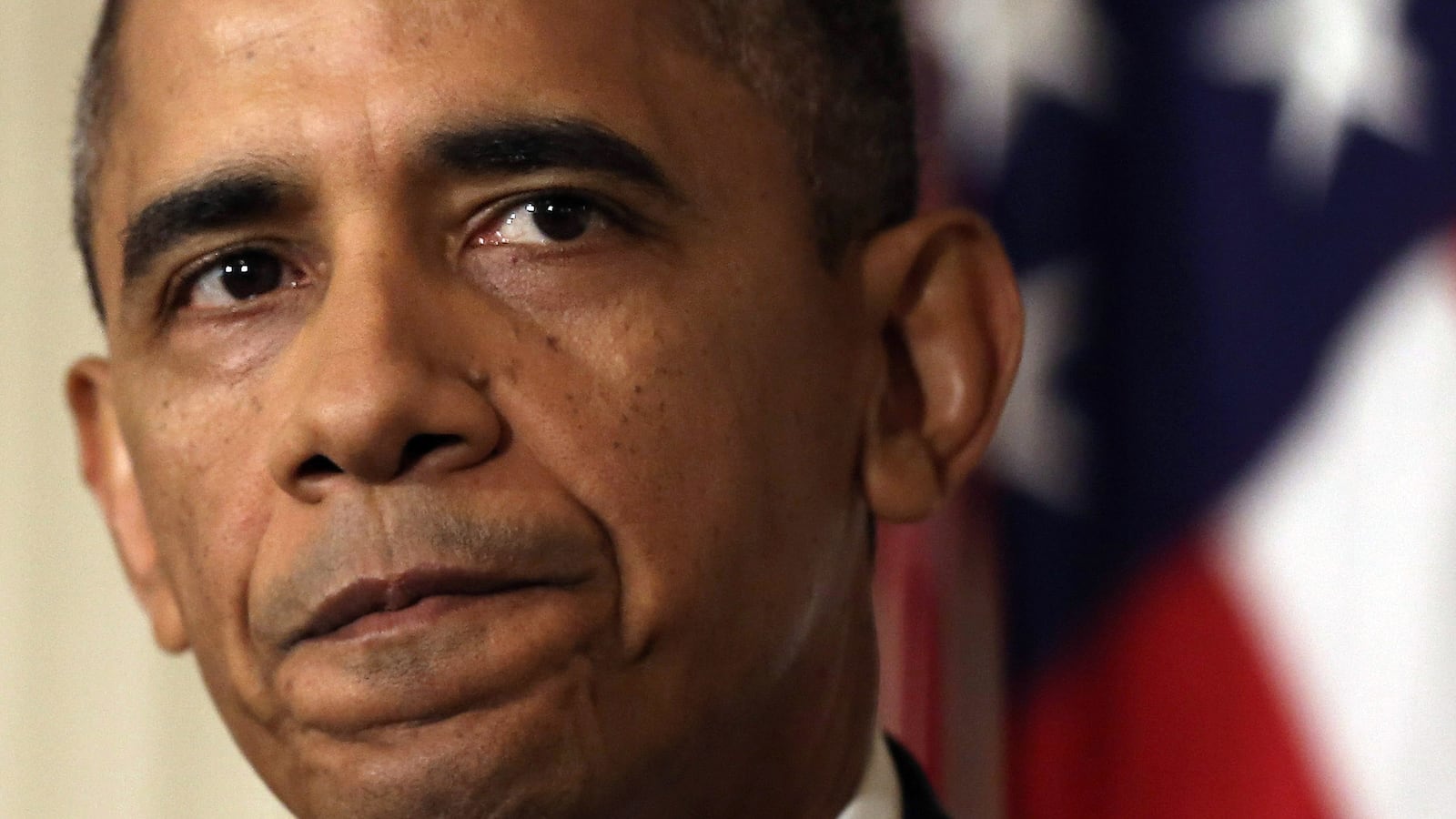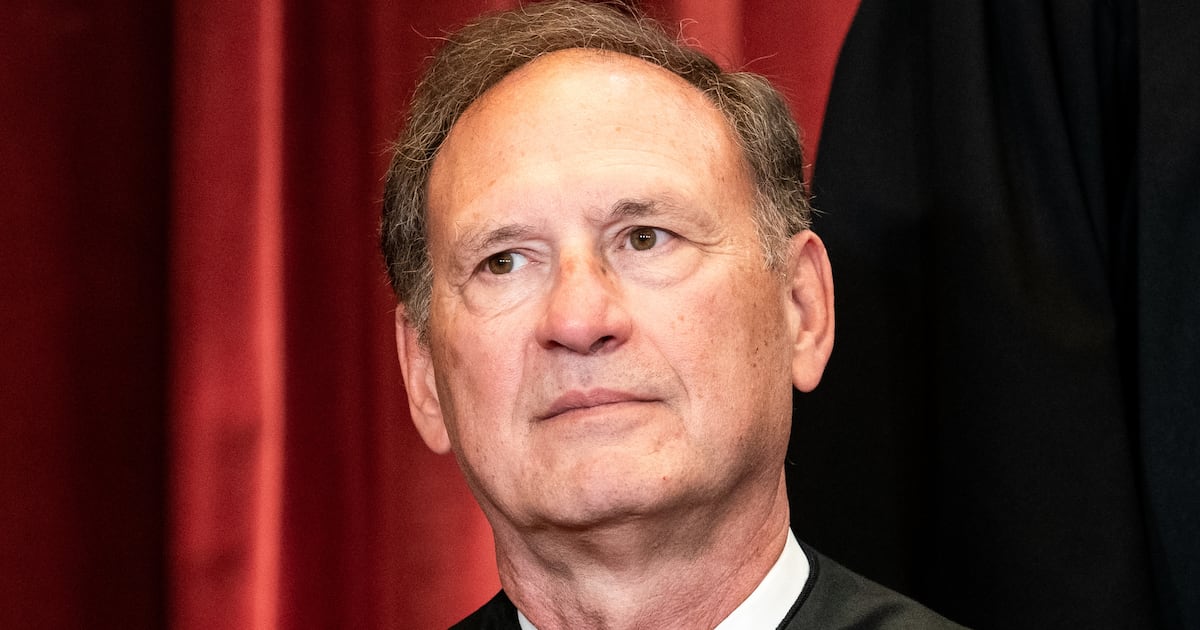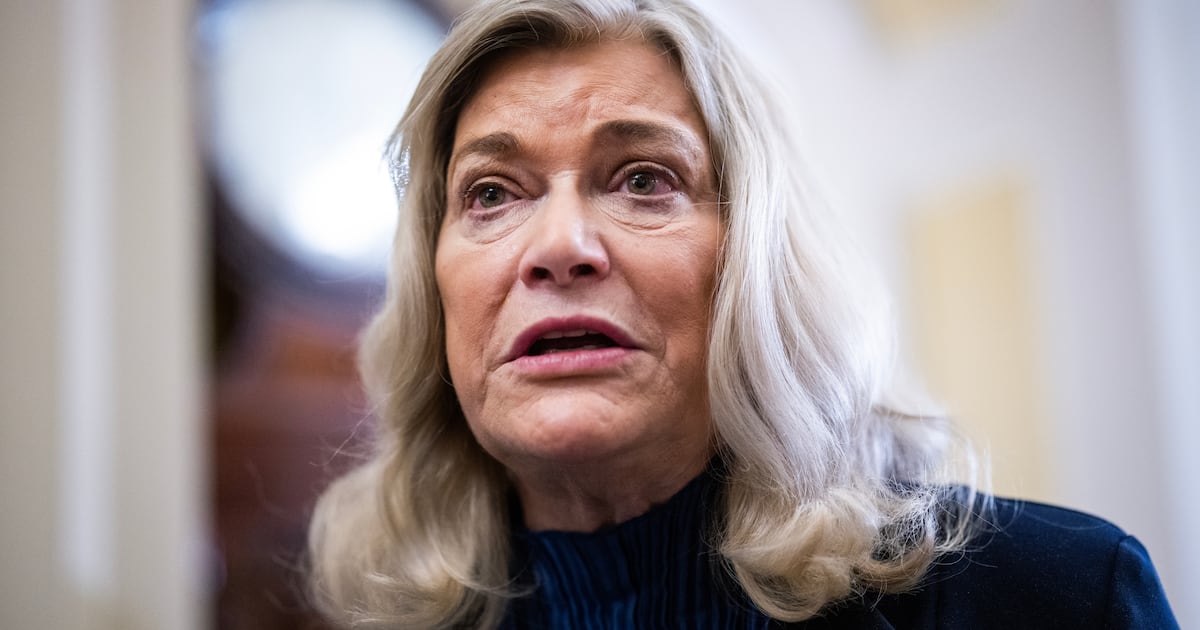The question “Who lost Iraq?” will inspire discussion, debate, and deconstruction by American foreign policy experts and practitioners for generations to come. And with good reason: the implosion of Iraq and the expansion of al-Qaeda-inspired militant movements across the heart of the Middle East represents the type of monumental setback for American foreign policy not seen since the Cold-War-era debates over “who lost China” and “who lost Vietnam.”
But while determining who (or what) is most responsible for the current Iraq debacle is important, of greater significance is figuring out what it means for America’s broader role in the world, and for an Obama White House that still has more than two years left on the ledger.
By any measure, the outlook appears grim. Indeed, Iraq is simply the most recent foreign policy calamity for an administration obsessed with reducing America’s role in the world. There is still time for a course correction. But for that to happen the administration needs to become far less concerned with winning the political “blame game” over Iraq, and focus on restoring America’s flailing global leadership.
It certainly does not inspire confidence that the White House is now in full defensive mode on Iraq, seeking to absolve itself of any responsibility for the stunning turn of events. The administration is of course blaming former president George W. Bush for starting the war in the first place (obviously true—but large bipartisan majorities in Congress also voted for the war). It is also trying to lay all blame on the Iraqi government for supposedly rejecting a proposal to leave behind a residual U.S. troop presence in Iraq after the prior Status of Forces Agreement (SOFA) expired at the end of 2011.
But facts are stubborn things. And the fact is Iraq, due largely to Bush’s 2007 troop “surge” that then-Senator Barack Obama and most Congressional Democrats opposed, was stabilized when Obama entered the Oval Office in 2009. Al-Qaeda in Iraq (AQI) had been decimated, thousands of U.S. military advisers were training the Iraqi army and security forces, and tens-of-thousands of U.S. troops were helping sustain the peace; all allowing for the growth of a nascent, yet admittedly imperfect, democracy.
Circumstances were so improved that Vice President Joe Biden (another “surge” opponent) crowed in February 2010 that a stable, democratic Iraq was going to be “one of the great achievements of this administration.” In December 2011 President Obama doubled-down on that sentiment, praising America’s “extraordinary achievement” in helping create “a sovereign, stable, and self-reliant Iraq.”
So the real issue is not whether Iraq had been successfully stabilized, but why Obama would order a precipitous withdrawal of all U.S. troops and military advisers from such a fragile experiment in self-government. After all, the United States kept tens of thousands of troops in Germany, Japan, and Korea long after those wars ended.
Well, Obama is now insisting that he actually wanted to leave behind a residual force, but Iraqi Prime Minister Nuri al-Maliki said no. When asked by a reporter last week if he had regrets about the troop withdrawal, he said, “Keep in mind that wasn’t a decision made by me. That was a decision made by the Iraqi government.”
Again, facts are stubborn things. And the fact is Maliki, despite strong domestic opposition, wanted to keep a robust U.S. troop presence after 2011, and offered to quietly sign a SOFA extension, including legal immunities for American forces. Things then quickly got complicated—and political—for the White House.
First, the administration began insisting that any agreement with Maliki be approved by the fractious Iraqi parliament; a virtually impossible demand (and, as seen with this week’s immunity agreement just between Obama and Maliki, an unnecessary demand). But it never even got to that point: political aides in the White House, worried about Obama’s 2012 re-election bid, pushed back hard against Pentagon requests for roughly 15,000 residual troops, eventually convincing Obama to approve only 3,500. Maliki—no Thomas Jefferson to begin with—was not about to risk his political life over such an insignificant contingent. America and Iraq agreed to go their separate ways.
None of this should actually be surprising. Though Obama would now like to airbrush history, we all remember that “ending the Iraq war” was an unyielding promise of his 2008 presidential run. And we all remember that in his reelection campaign Obama repeatedly touted his decision to bring all troops home from Iraq: in September 2012 he exclaimed, “Four years ago, I promised to end the war in Iraq. We did.”
The bottom line is the Iraq withdrawal was not some aberration to now be politically jostled over; it was a proud part of Obama’s broader foreign policy “doctrine” based on reducing and limiting America’s role in the world, in order to focus on “nation building at home.” There is nothing wrong with those sentiments, and they certainly appeal to an American public that is war weary—and world weary—after more than a dozen years of overseas conflicts following the attacks of Sept. 11, 2001.
The problem is, for this doctrine to succeed, the world must be compliant. And despite Obama’s best efforts to convince Americans that “the tide of war is receding,” the headlines they see every day scream otherwise—whether it be Russia seizing Crimea; China flexing its muscles in the South China Sea; thousands more slaughtered in Syria’s civil war; or the Islamic State of Iraq and al-Sham (ISIS) seizing nearly all of northern and western Iraq.
This is why public approval of Obama’s handling of foreign policy has sunk into the 30s—not because Americans worry Obama will do too much in foreign affairs, but because his deference to caution comes with visible risks. For example, in January Obama mocked ISIS as a lesser al-Qaeda: “If a JV team puts on a Lakers uniform that doesn’t make them Kobe Bryant,” he said. Now ISIS controls one third of a state in the Mideast, and is plotting attacks against America.
In July 2008, candidate Obama promised he would be “as careful getting out of Iraq as we were careless getting in.”
With Iraq now in flames, and the entire Mideast at risk, perhaps President Obama and his national security team will finally rethink a doctrine they like to informally describe as “leading from behind” and “not doing stupid shit.” Sometimes an excess of caution is the most careless approach of all.






